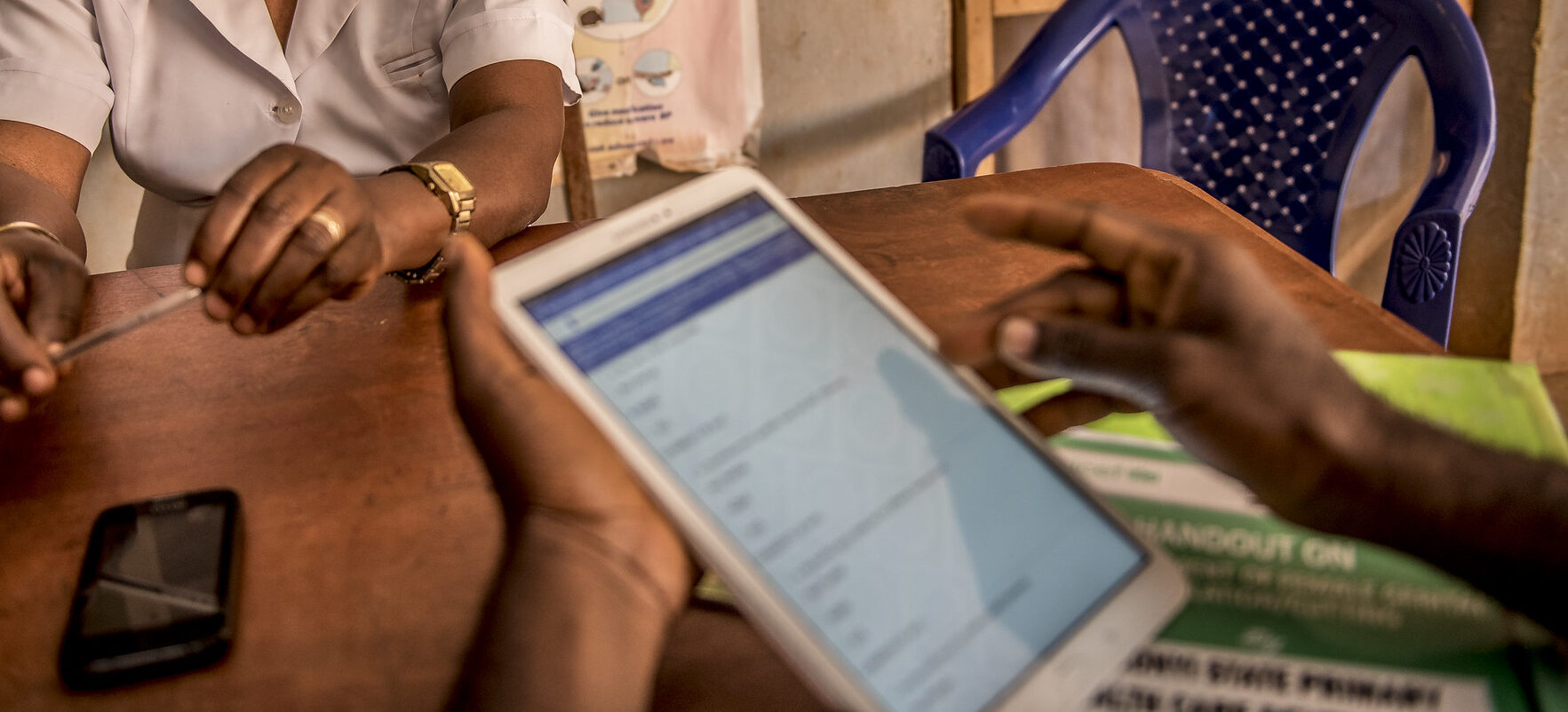- Adolescent and Youth Health
- AI Integration
- Family Planning and Reproductive Health
- Gender Equity
- Global Health Security
- HIV
- Immunization
- Infection Prevention and Control
- Innovations
- Learning and Performance
- Malaria Prevention and Treatment
- Maternal Newborn and Child Health
- Measurable Impact
- Nursing and Midwifery
- Primary Health Care
- Tuberculosis
- Women’s Cancers
Redefining Tradition, Manqoba Dlamini is a Leader, Proud Swazi, and Champion for HIV Prevention
BySetsabile Blessing Hlophe
Eswatini, a nation rich in tradition and heritage, has long faced one of the highest HIV prevalence rates in the world, with nearly 25% of adults between the ages of 15 and 49 living with HIV. In response, the country has embraced the UNAIDS 95-95-95 targets, with voluntary medical male circumcision (VMMC) emerging as a cornerstone of its HIV prevention strategy. But cultural barriers have prevented their uptake in communities.
In the traditional town of Lobamba, for example, resistance to VMMC is deeply entrenched. For generations, the townsmen have considered circumcision to be incompatible with Swazi identity, especially among men who wear traditional clothing. Manqoba Dlamini, a member of the Swati ethnic group (called Emaswati), was one of those proud traditionalists and often shared the sentiment that, “Our forefathers died with their foreskin, and I will also die with mine.” But change was on the horizon.

Cultural Crossroads and the Turning Point
Recognizing the need to build a bridge between health and heritage, Jhpiego partnered with the Ministry of Health in 2020 for the Strengthening of the Kingdom of Eswatini’s Medical Male Circumcision program. Funded by the U.S. Centers for Disease Control and prevention (CDC) under the U.S. President’s Emergency Plan for AIDS Relief (PEPFAR), Jhpiego and the Ministry of Health launched a VMMC campaign in Lobamba that engaged traditional leaders and hosted culturally sensitive community dialogues. These gatherings weren’t just about medical facts, they were safe spaces for open conversation, reflection, and trust-building.
Manqoba, initially skeptical, began attending these meetings. He listened. He asked questions. And slowly, his perspective shifted. He learned that VMMC could reduce a man’s risk of acquiring HIV by about 60%, and that it didn’t conflict with his cultural identity; it could, in fact, protect it. Eventually, Manqoba made a life-changing decision: he chose to undergo circumcision at the age of 39.

A Ripple Effect of Change and Impact
The transformation was profound. “I never thought I’d get circumcised,” Manqoba said. “But after learning about the benefits, I don’t regret a single day since. I encourage all Emaswati men to consider it.” His courage inspired others. Two nephews and three close friends followed his lead. What began as a personal decision sparked a community movement, breaking down long-held barriers and opening doors to healthier futures.
The results speak volumes. According to the Swaziland HIV Incidence Measurement Surveys (SHIMS), HIV incidence among men between the ages of 15 and 49 was 2.5%. By 2016–17, it had dropped to 0.85% and by 2021, one year after the start of Jhpiego’s VMMC project, it was at 0.20%. This dramatic decline underscores the power of VMMC, especially when paired with community engagement and cultural respect.
A Mission in Action
“Jhpiego’s work in Eswatini truly reflects our vision of self-reliant countries, healthy families, and resilient communities,” says Londiwe Dlamini, Technical Advisor for Jhpiego in Eswatini. “By listening first and leading with respect, we’ve not only improved health outcomes we’ve empowered communities to take ownership of their health and their future.”
Reaching men in hard-to-reach communities like Lobamba requires dedication, consistency, and adaptability. Jhpiego used innovative community engagement techniques, targeted social media campaigns, local outreach, and client-centered demand creation to raise awareness and increase uptake of HIV prevention services, especially Voluntary Medical Male Circumcision (VMMC).
“The impact of these efforts is undeniable,” said Londiwe. “Since March 2024, more than 193 men have ben circumcised. These numbers reflect more than just statistics they represent lives changed and communities strengthened.”
Jhpiego is transforming health care in Eswatini by working together with communities, health workers, and local leaders, driving demand by putting clients first and making services easier to access and training health workers to help more Emaswati move closer to an HIV-free generation.
Setsabile Blessing Hlophe is a Demand Creation Assistant for Jhpiego Eswatini.
Elizabeth Irungu, Jhpiego’s Regional Technical Advisor for HIV, reviewed this story.


